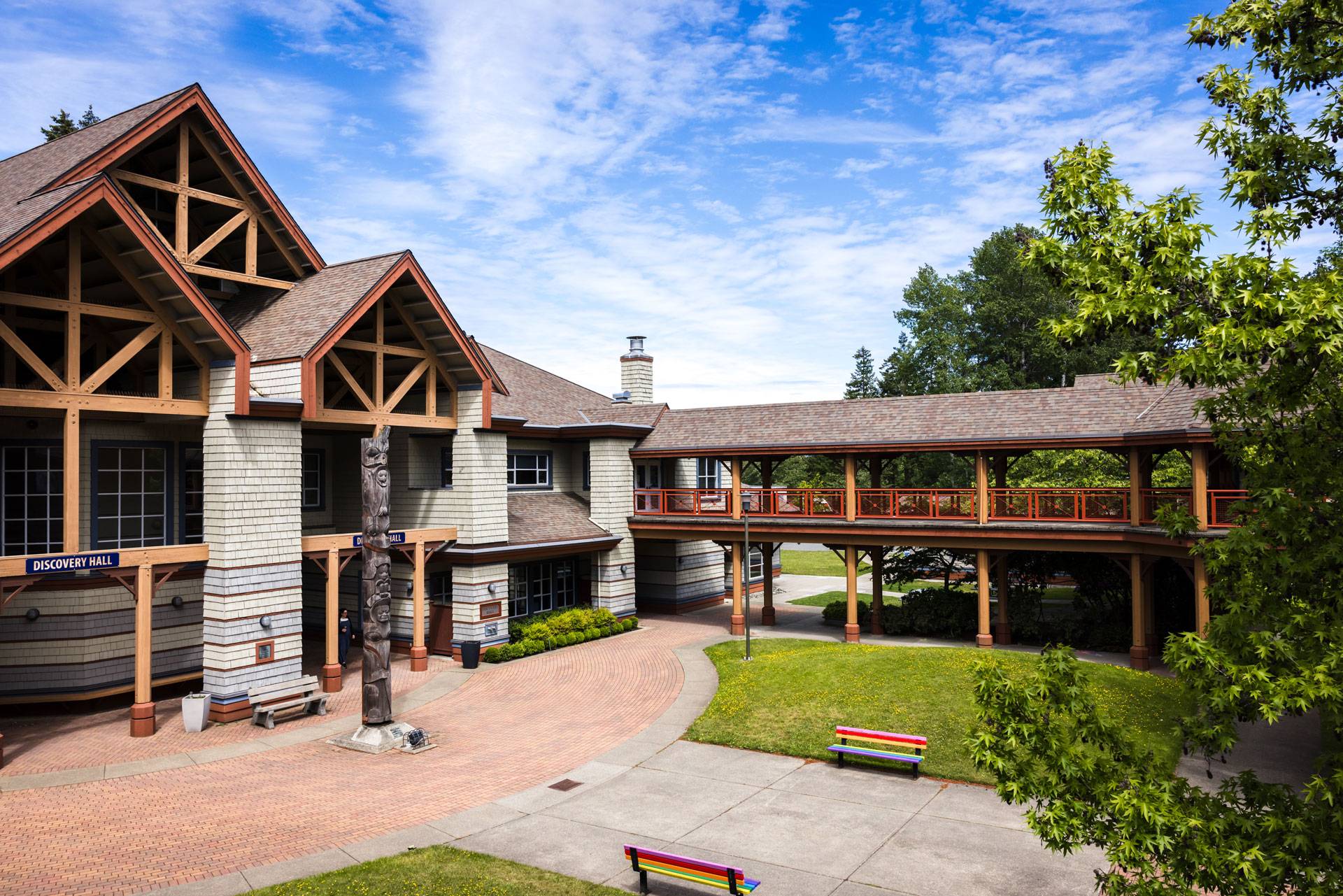It’s election time — a time for student politicians making vague promises and a general sense of apathy from the student population.
But this election also brings two referendums for the student body at large to vote upon. Both referendums concern student society fee increases for part-time and full-time students, though neither would raise student fees by more than a dollar.
The first proposes increasing the funding for University 101, a program offered by UVic with weekly lectures on a variety of different topics. University 101 is non-credit program, meaning it doesn’t count towards a diploma or degree, but by providing free meals before classes, bus tickets, and child care subsidies, it is geared towards providing education for those who normally have difficulty accessing it.
If passed, full-time students would pay an additional $0.75 per semester and part-time students would pay $0.37 per semester.
Terry MacDonald, the proponent for the referendum, says the money could be vital for saving the program that has run at a loss since its inception.
“It’s such a great tool for marginalized members of the community,” MacDonald, an alumnus of Uni 101, says. “There’s so many brilliant people in that community that would fit right in here but [are unable to] thanks to their circumstances.”
“These people wouldn’t be coming here if it wasn’t for the program.”
“I’ve always been interested in academics,” MacDonald says of his own experience. “But due to barriers, I never finished high school. I never got the opportunity to come [to UVic] and I never thought I could.”
MacDonald signed up for the program, and following a positive experience was able to start taking classes at UVic. He hopes an increase in funding will result in more stories like his.
The second proposition involves increasing the fee students pay into the UVSS Travel Pool Fund by $0.36 and $0.18 per full-time and part-time semester, respectively. The fund is available to all students at the University of Victoria, with students able to apply for travel money either individually or through a course union.
Currently, students pay $2.50 and $1.25 per full-time and part-time semester, respectively, to clubs and course unions.
Sean Quicke is the proponent for the referendum, and Kevin Tupper, who is also running for the Director of Finance and Operations for Encompass UVic, is the opponent.
Quicke, a Music Education student, believes increasing the Travel Pool Fund will enrich the positive contribution students make at UVic after travelling.
“That contribution to the campus discourse could happen formally,” Quicke says, “but most likely it happens informally. It happens from the broadening perspectives of the people who have travelled come back with.”
“It’s important not to underestimate the benefit to individuals which is a big part of it,” Quicke says. “If students at UVic are becoming better people and better trained in their field . . . I think that’s a benefit to the school in maybe a big picture, abstract way.”
However Kevin Tupper, a third-year Economics student, isn’t sure that benefit is large enough to warrant a fee increase.
“I think that the use of the fees is something we really have to consider really long and hard, here,” Tupper says. “I would like to hope there is a benefit . . . but I also really seriously question how much benefit these students can bring back.”
He continues: “I think it’s important to present UVic in a positive light, to be representing our school and our great community, and it’s important to bring back these experiences as well, but I do have to wonder how 17 000 or so students are able to benefit from the dozen or so students having these experiences.”
Tupper, who is running in line with the mandate from the Encompass UVic slate, is also concerned with the transparency of the Travel Pool’s process in its allocation of funds.
“The Travel Pool Fund definitely has its heart in the right place,” says Tupper, “but the implementation on it has been shocking and poor. And it’s really irresponsible to be increasing fees, levied on all students, to a system that’s not transparent . . . [where] decisions aren’t made with proper regard for the students that are paying into it.”
The allocation of the Travel Pool Fund is decided by the Course Union Council, a council run by the 30 or so Course Unions registered each year. Part of Tupper’s opposition stems from his claim that the council doesn’t provide sufficient data on the recipients of the fund, calling it a “non-transparent process.”
“A big issue, for me personally,” Tupper says, “is trying to access that information. Both as to who has gotten [the money], who has applied, and how that decision was made.”
Tupper cites an email conversation between himself and Director of Student Affairs Kaylee Szakacs in which he claims she was unable to provide information due to confidentiality concerns.
Quicke dismisses these claims.
“[Tupper] had asked [Szakacs] for a list of all the people who had received funding in the past number of years,” Quicke says. “That’s not already digitized [but] the paper records exist. They’re in a folder. You can go talk to [Szakacs] and ask to see them.”
Quicke says that Szakacs couldn’t provide a list for Tupper due to other time-consuming UVSS activities. In a separate report by the Martlet, Szakacs said she was busy planning SUB Zero, the Semi-Annual General Meeting, and the Education is a Right rally when Tupper reached out to her.
“But he could’ve done what I had done in the fall,” says Quicke, “which was go and ask to see those records, and he could have seen them.”
The referendum results will be revealed alongside the UVSS election results at the end of the voting period on Friday, Mar. 4 at 9 a.m. Until then, it’s up for the students to decide whether or not the cents make sense.






